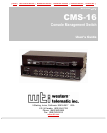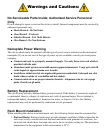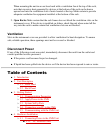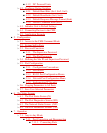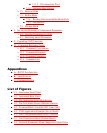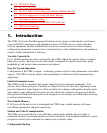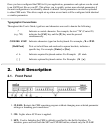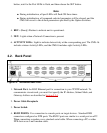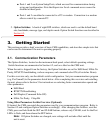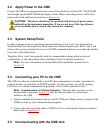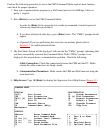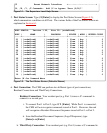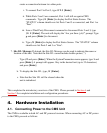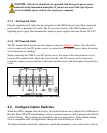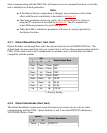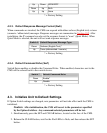
5.4. IP Security Menu●
5.5. The Copy Port Parameters Menu●
6.1. The Port Status Screen (Supervisor Mode, Defaults Shown)●
6.2. The Port Diagnostics Screen (Defaults Shown)●
6.3. The Network Status Screen●
6.4. The Port Parameters Screen (RS232 Port Shown)●
A.1. RS232 Port Interface●
1. Introduction
The CMS-16 Console Port Management Switch provides secure, in-band and/or out-of-band
access to RS232 console ports and maintenance ports on UNIX servers, routers and other
network equipment. System Administrators can access remote devices in order to change
configuration parameters, connect users to restricted ports, collect buffered data, and perform a
variety of other administrative functions.
Versatile Connectivity
Up to 16 different devices can be connected to the CMS without the need to select a common
baud rate or parity. Each port can be individually configured for specific baud rates, parity,
handshaking, and various other parameters and options.
Easy Set-Up and Operation
Configuration of the CMS is simple. A menuing system is used to select parameters, and enable
options. The CMS can easily adapt to the requirements of almost any data communications
application.
Limited Command Access
The CMS is ideal for situations that require limited access to important commands. Two
security levels allow each port to function as a Supervisor Port or User Port, depending on the
password entered at login. Supervisor Ports are allowed to change configuration, display status,
and connect to any other port; User ports are only allowed to connect to the ports provided by
their password. Each individual port can be assigned its own unique, user-defined password, up
to sixteen characters long.
Non-Volatile Memory
If AC power to the unit is lost or interrupted, the CMS's non-volatile memory will retain
user-defined parameters and port connections.
Modem and Telnet Communication
The CMS can be controlled by a local PC that communicates with the unit via cable, or
controlled remotely via external modem or telnet connection. Your terminal emulation or telnet
program is used to send commands to connect ports or display status.
Configuration Backup



